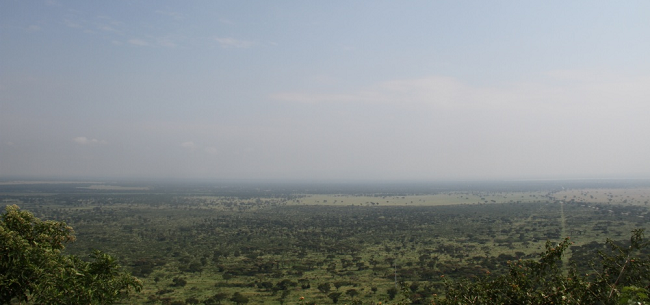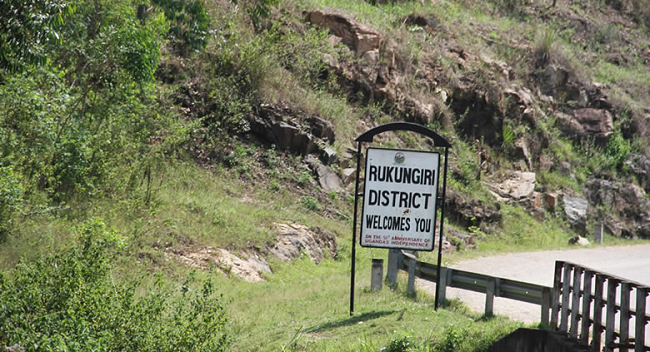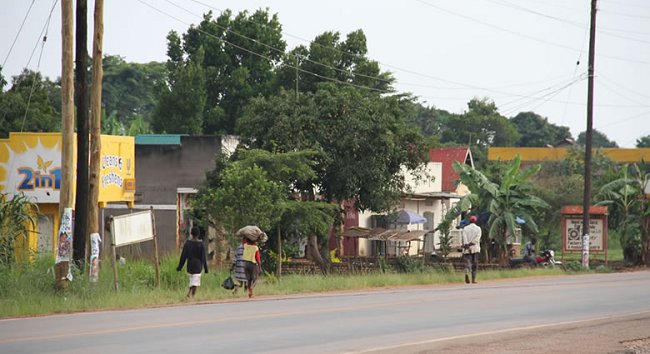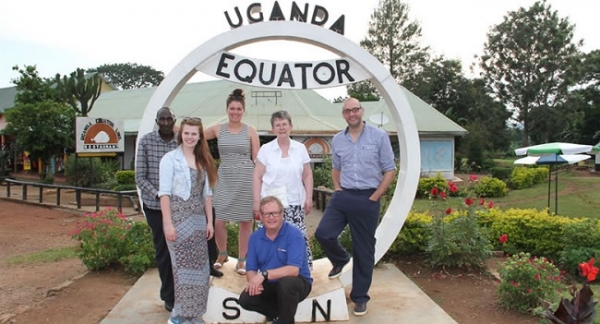"I think about those children who are thrilled to be given a pad and pencil."
From the Chilli Children’s Life Skills Clinic to brick-laying at Kitazigurukwa SEN Primary School in rural, south-western Uganda, my journey has taught me an awful lot about the difference the likes of you and I can make and how easy it is to completely transform an individual’s life.
I will attempt to bring to life the culture and the atmosphere, the issues people face, the projects that are in place now and also tell you about individual stories of hope and sometimes desperate need.
I was part of a small team organised by Christian charity Mission Direct, who support projects all over the world.
Let me start by telling you a little about our initial journey and what we found when we arrived. We flew 8.5hrs from Heathrow to Entebbe, landing at 3792ft above sea level before driving through bustling towns and villages and weather ranging from beautiful hot and clear days to torrential flooding waters racing through the streets. Uganda is a lush, green country with endless stunning views. I was expecting to see a lot of dry landscape but it just isn’t there. We travelled west; if you travel east the climate is much hotter and dryer but heading west in the direction of Rwanda and the Congo just offers mile after mile of staggering beauty.

The people we met were all hugely friendly and I noted that many people told us how thankful they are that we were there. While the scenery is wonderful, the circumstances in which the people of Uganda often find themselves are hard.
I’m back home now and I remember when I visit schools and see 80in LED touchscreen TVs being used so creatively and no shortage of books, pencils and a huge range of rich resources. I think about those children in Uganda who are thrilled to be given a small pad and a single pencil. To see them laughing as they draw with a scrap of chalk on a blackboard. I hear them singing songs about how grateful they are to their parents for working incredibly hard to pay for their schooling.
I remember the care that our family has had from the NHS and others, particularly our son, who has Down’s Syndrome. Then I think about how difficult it is for families in Uganda to get any medical treatment.

The hardship very much hit home one particular day. We set off back to our hotel early from an afternoon working at the building site one day because it was raining very hard. In the rain accidents are very common. We stopped suddenly when one of the team spotted a little girl lying in a ditch. She was walking home from school and had been hit by a boda-boda (motorcycle). She was clearly in a bad way; bruising to her side, a huge lump and a large gash to her head. Her brother stood watching as we tried to speak to a neighbour to tell them we would take her to hospital before bundling her limp body into the minibus.
She had a collapsed lung but her head injuries weren’t as serious as we first thought. Her mum found out quickly what had happened and arrived at the hospital within a short space of time. She spent a week in hospital before being discharged. Her name is Susan. Her mum had to keep taking a boda-boda back home to fetch food, clothes and other supplies because the hospitals in Uganda provide medical treatment and nothing else.
All this time the family are amounting an enormous bill and having to pay for rides to and from home. Imagine this; the bill for the family, just for the medical treatment was the equivalent of over 6 months wages. For us, if we came up with about £120 we were able to cover all their expenses, including travel and food. Of course we all chipped in and made sure that family was provided for. But it struck me how often this must happen and how families are left having to sell everything they own to pay a medical bill, and then there is no way out.

There are lots of stories to tell so I will try not to go on too much! In a few days I will tell you about the main project we worked with, the building work at Kitazigurukwa and time with the disabled children at the school.
I would be very happy to chat with you about the trip, do ask if you have any questions, see my contact details in the bio below.
Have you visited Uganda on education business? Share your comments below!


















